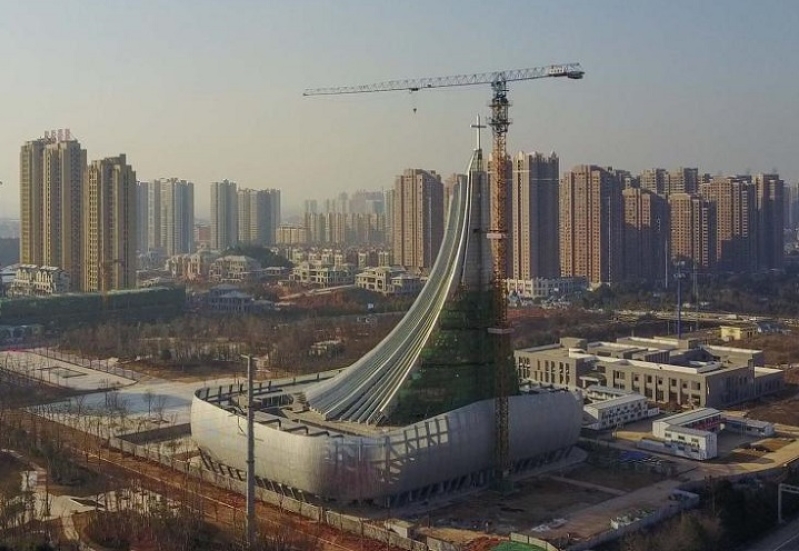
A 260-feet tall church building is being constructed in Changsha, China, the city where Mao Zedong was introduced to and embraced communist ideologies.
Xingsha Church, inspired by Noah's Ark, looms over Xingsha Ecological Park, where a center for Bible studies is also found together with administrative offices and residential quarters. When finished, the Protestant church will be more than twice the size of Mao's biggest statue in China just a few miles away from the site, according to The New York Times.
A controversy erupted earlier this year when communist supporters were enraged by the building's construction, particularly when the project was being subsidized by the state. The local authorities were quick to address the issue by blocking online news about the church construction and not entertaining calls to the church's headquarters.
Mao was born in Shaoshan, Hunan Province. At 17, he moved to Changsha for secondary school, and it was there that he witnessed the political and cultural changes that were happening to China at the time. He did not go back to his hometown, becoming a teacher at age 18.
Eventually, he joined the Revolutionary Army and the Nationalist Party or the Kuomintang. Mao later on became the leader of the Chinese Communist Party from 1935 until the day of his death.
Many of his supporters consider the construction of a Protestant church in the place where his political ideologies were formed as an insult. However, many Changsha residents do not appear to care. While they take pride in Mao's historical connection to the region, religion does not seem to be a big deal.
"Mao was a son of Changsha. And emperor. The most successful man in China. So he's a great asset to Hunan and Changsha," Tan Hecheng, a former journalist from Hunan, told The New York Times.
"Belief in the party has died, and everything today turns on advantage and disadvantage. Under such conditions, people don't care about anything, really. Mao is fine. Christianity is fine. It's all kind of irrelevant," Tan said.
Changsha was once a hotbed of Christianity, but many churches have been shut down by the Communist Party.
At present, the Chinese government has imposed tightening controls to regulate the practice of religion and has launched crackdowns on churches and human rights lawyers defending Christians from persecution. However, such measures have not achieved what the government intended, but only served to strengthen the people's resistance against them.
Pulitzer prize winning author Ian Johnson, who wrote 'The Souls of China: The Return of Religion After Mao,' recently said the country is experiencing an "explosion of faith" despite the intense persecution of religious groups since the Communist Party took power in1949.
According to him, the people are seeking a "moral compass."
He also said the growth could be seen particularly among the unregistered churches and the house churches, which have "become surprisingly well-organized, meeting very openly and often counting hundreds of congregants."







